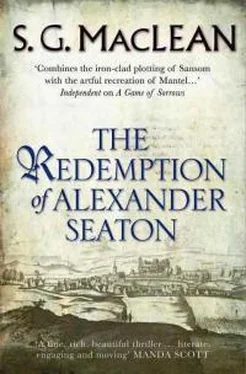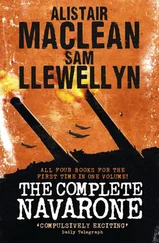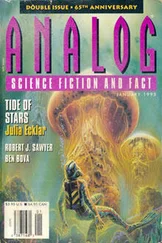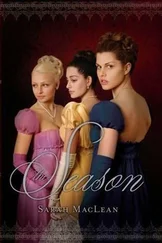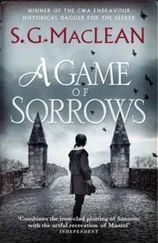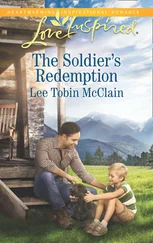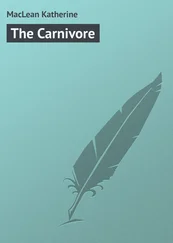‘And you have never seen it here?’
‘Never. There are perhaps some like it in appearance, in the blue at least, but the purple calyx and stigma, these I have never seen here. Have you?’ He asked the question absent-mindedly, little thinking that there could be any other than one answer. When I did not reply, he looked up from studying the book. ‘Have you seen it, Alexander?’
I hesitated. ‘I … I do not know. I do not think so. That is – I think I may have done.’ There was something, something flitting before my eyes, in my mind. A glimpse, little more, of blue, with purple, falling, falling. I searched harder. I shut my eyes against the warm golden light of the room, for it was another type of light I sought – darker, colder, more still. I tried to clear my mind of the almost inaudible breathing of the fire, the heavier intrusion of my companion, the knowledge of the life and movement in the room and the power of the sea in the darkness outside, but I could not. The image, the memory of the image was gone, and now all I had was a construction of my own making. I opened my eyes, shaking my head in a slow frustration. ‘I am sorry, James,’ I said. ‘It is gone. Whatever I thought I remembered, it is gone.’
The look of hopefulness faded from his face to be replaced by one of disappointment. ‘Do you think it was in Banff itself, or out in the country somewhere, maybe? Was it wild, or in a garden? Do you think it might even have been in Aberdeen?’ This last suggestion lit some small flicker of possibility in my memory. Had it been in Aberdeen? Somewhere in Aberdeen? There was something that seemed to make it possible, but no. I could reach no further than that into the recesses of my mind, and then the flickering light went out.
‘No, doctor, I am sorry; there is nothing.’
‘Ah, well,’ he said, ‘maybe something will bring it back to you. With these drawings at least, we know what it is that we deal with, and that is something.’ He closed the book and again smoothed his hand over the front cover. ‘You told your friend William Cargill why we wanted these notebooks?’
‘There was no other way to explain my sudden interest in botany, and,’ I added, ‘in the way of friendship, I wanted to talk with him about the business.’
He smiled. ‘I am glad you are allowing your friends to be friends again. And what did William Cargill think of this business here? The murder, I mean, and the imprisonment of Charles.’
I looked at him. ‘He said that I should take great care. He fears for me in all this, that there are signs pointing to me, there for when people are ready to look.’
Jaffray’s eyes were steady. ‘He is right. I have thought it myself and never said it, though perhaps I should have done. And do you fear this, Alexander?’
A few weeks ago I would have said I had no more fear of what man – or, in the blackest of my days, God – could do to me. But that was no longer true. I had been out again in the world of men; I was not a thing damaged beyond use as I had for long believed. I had lost the respect of the world once and, as I saw it, the access to God also. ‘I think I would like to keep what name I have left to me, and what future too.’
‘Then you must take a great care, Alexander, that you do not lay yourself open to further danger. When you were in Aberdeen, did you tell anyone other than William Cargill of our desire to see the notebooks, or of our reason for it?’
‘I told no one.’
‘And you have shown no one the notebooks, until now?’
‘No one,’ I asserted. At Straloch I had kept them well hidden amongst the things I had taken into the house with me, having been careful not to leave them in the stables with my horse and other goods, for fear of fire. ‘Does it matter so much?’
He considered. ‘Perhaps not, but the fewer people who suspect you of drawing closer to the truth of this thing, the safer you will be.’
‘And will you show them to Arbuthnott?’ I asked.
‘It would perhaps be wiser not to. I do not think it will do him good to dwell over-much on the means of Marion’s death. But,’ he continued, ‘it may be that we have no choice, for he would have a better knowledge than either of us of the plants that grow hereabouts, and the drawings might spark some memory in him. It was Marion though, Marion who would have known more surely than anyone where it is to be found.’
‘And you had only the one opportunity to speak privately with her while I was gone?’
‘I did,’ he said. ‘For when the baillie was not about her, her mother was, and she would not talk before either of them.’
‘And she really told you nothing of this business?’ I pressed. He turned away and stoked the fire. ‘We spoke of other things.’
I knew of old the tenor of Jaffray’s voice when he wished to close a subject, and it betrayed him now. Yet I was not ready to leave it. ‘Do you think she knew about Davidson’s activities – the map-drawing, and what it was for?’
‘She cannot but have known about it – certainly about the drawing, for when else would he have made his sketches than when they were wandering about the countryside? As to the espionage – if there was any – Marion was not the girl to get caught up in great causes or secret plots. They would have been an unnecessary distraction for her from the essentials of life – of her life at least. She had too great an interest in her father’s craft and in other science to waste her time on the politics and religion of nations. I think had Davidson been involved in those pursuits, or attempted to entangle her in them, their companionship would have come to an earlier and cleaner end.’
I thought about the girl, trying to remember the few true conversations we had had together. Jaffray was right. In her hours away from her work in the provost’s nursery, she had worked steadily and with great focus on the understanding of the pharmacopoeia of her father’s craft and the nature and purpose of every plant that grew around these parts. She would have cared little for Spanish invaders or popish plots, and certainly would not have lost her life in their defence. But how far might her fascination with science have taken her? ‘Jaffray,’ I began, ‘do you truly give no credence to the idea that she was …’
His brow darkened and he looked at me hard. ‘Go on, Alexander.’
‘Do you truly give no credence to the idea that she meddled in witchcraft?’
He breathed a great sigh of exasperation. ‘This again? Do you tell me you believe that pernicious nonsense?’
‘No,’ I answered truthfully and emphatically, ‘I do not.’
‘Then why …?’
‘Because she went to all the places, James. The Elf Kirk, Ordiquhill, where John Philp is much suspected as a witch, where the waters are said to have properties, and Darkwater.’
Instead of continuing in his anger, Jaffray broke into a smile and laughed at me, though nervously, I thought. ‘Oh, Alexander, come now. Half the bairns in the town are at the Elf Kirk precisely because their mothers and the session warn them from it. And as for Ordiquhill and Darkwater, well, both are places of importance to those who would seek to land or make their way inland from our coast. Findlater guards the coast at Darkwater, and Ordiquhill is on the road from there to Strathbogie, by Fordyce. Davidson would need to know them both for his mapping.’ He turned away from me and went again to stoke the fire. I knew he was hiding something from me.
‘James, she went twice to Darkwater: once with Davidson, and once on her own, after he was dead. They say she went to the wise woman.’
He spun round angrily. ‘“They say”. Who is this new “they” in whom you place such trust?’
‘It was much muttered by the mob last night–’
Читать дальше
